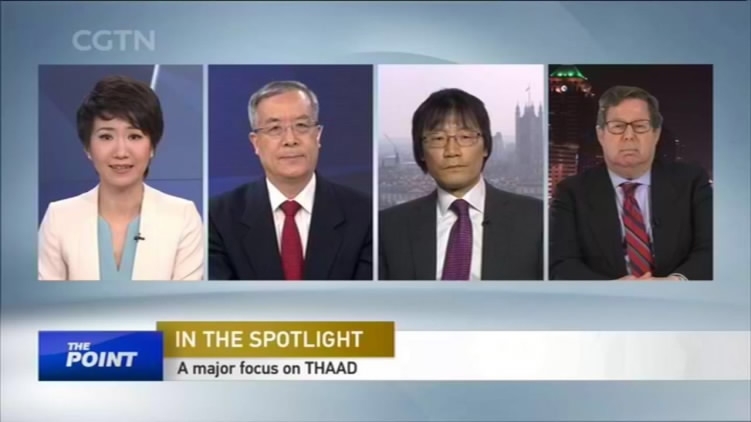By CGTN's Gao Jing
"The diplomatic and other efforts of the past 20 years to bring DPRK to a point of denuclearization have failed," said US Secretary of State Rex Tillerson in Japan, his first stop on a three-nation Asian tour from March 15 to 19. Tillerson also said he will use different approaches to address the issue, but did not disclose details.
During a discussion on CGTN's The Point with Liu Xin, experts and scholars shared their insights on the approaches the US might employ.
Yoshikazu Kato, visiting professor at Liaoning University, said the Trump administration is showing less strategic patience compared with the Obama administration. As a close ally of the US, Japan will reach a consensus with the US to put more pressure on China on the Korean Peninsula issue. But Kato added it will also make the issue more complicated.

The Point with Liu Xin at CGTN /CGTN Photo
Rick Dunham, visiting scholar at Tsinghua University, said there are still approaches the US can bring to the table. One that may be surprising is that Trump could have a direct conversation with the Democratic People’s Republic of Korea (DPRK).
US impatience on the issue is translating into action. Of its latest efforts, the US is hastening the pace for the deployment of the Terminal High Altitude Area Defense (THAAD) system in South Korea.
Tat Yan Kong from the School of Oriental and African Studies at the University of London said China has suspended coal imports from the DPRK for 10 months. That amount represents 40% of the DPRK’s exports to China. Kong also said the US needs to wait for China’s sanctions on the DPRK to take effect before it rushes to deploy the THAAD system.
On the Chinese Foreign Ministry's annual news conference on the sidelines of the Two Sessions, Chinese Foreign Minister Wang Yi said China should work as a switchman to stop two "accelerating trains from coming toward each other."
Professor Su Ge, president of China Institute of International Studies, agreed with the minister’s comment and said no one is ready for a clash. He also said inviting all sides to return to the negotiating table to address the issue in a peaceful way is the best way out.









